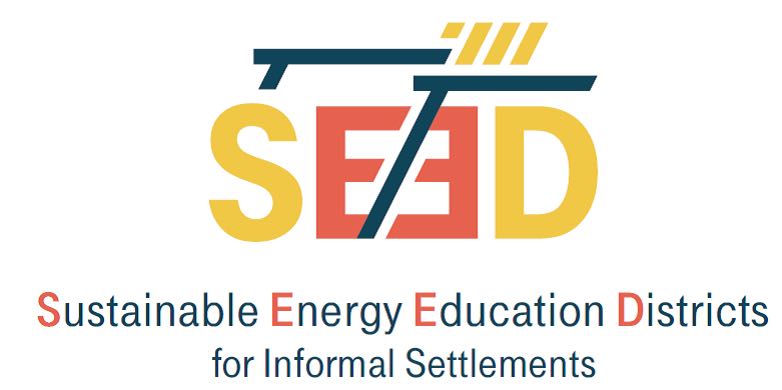Aktuelle Forschungsprojekte

Sustainable Energy Education District for Informal Settlements (SEED)
Keywords: Sustainable energy supply, renewable energies, informal settlements, infrastructure development, resilience, R&D, Mozambique, Kenya, international partnerships
Members: Project Leader: Prof. Dr.-Ing Wilfried Zörner Cooperation Partners: Universität Bayreuth (UBT), Technical University of Kenya(TU-K), Universidade Eduardo Mondlane (UEM), Phaesun GmbH Associated Partners: Nairobi City County, Ministry of Mineral Resources and Energy Mozambique, Pratical ACTION Kenya, Associacao de Energias Renovaveis do Limpopo Mozambique, Festo Didactic |
Project Description:Access to electricity is a basic prerequisite for economic development and indispensable for improving the health and education situation. In sub-Saharan Africa, however, about half of the population still has no access to electricity, and people living in informal settlements in cities are particularly affected, in addition to the population in rural areas. Therefore, illegal and unsafe electricity supply structures are often established in informal settlements, which entail risks such as increased fire or health hazards. On the other hand, based on the results of this analysis, a sustainable energy supply concept (energy hub) will be developed, which will provide electricity and hot water, among other things. Such an energy hub considers the diverse interests of potential consumers such as small entrepreneurs, local households or public services. At the same time, through different workshops, a greater awareness of the potential of renewable energy resources will be created among the local population and authorities. The project consortium will also analyse the valid legal framework for such a decentralised energy supply in the project countries and define business models for mobile payment processing for energy use. This will ensure the long-term operation and use of the energy hubs and strengthen the ownership of the local population. Various local actors are involved in both the analysis and the development, which enables a continuous transfer of knowledge and promotes intra-African networking. |
|
